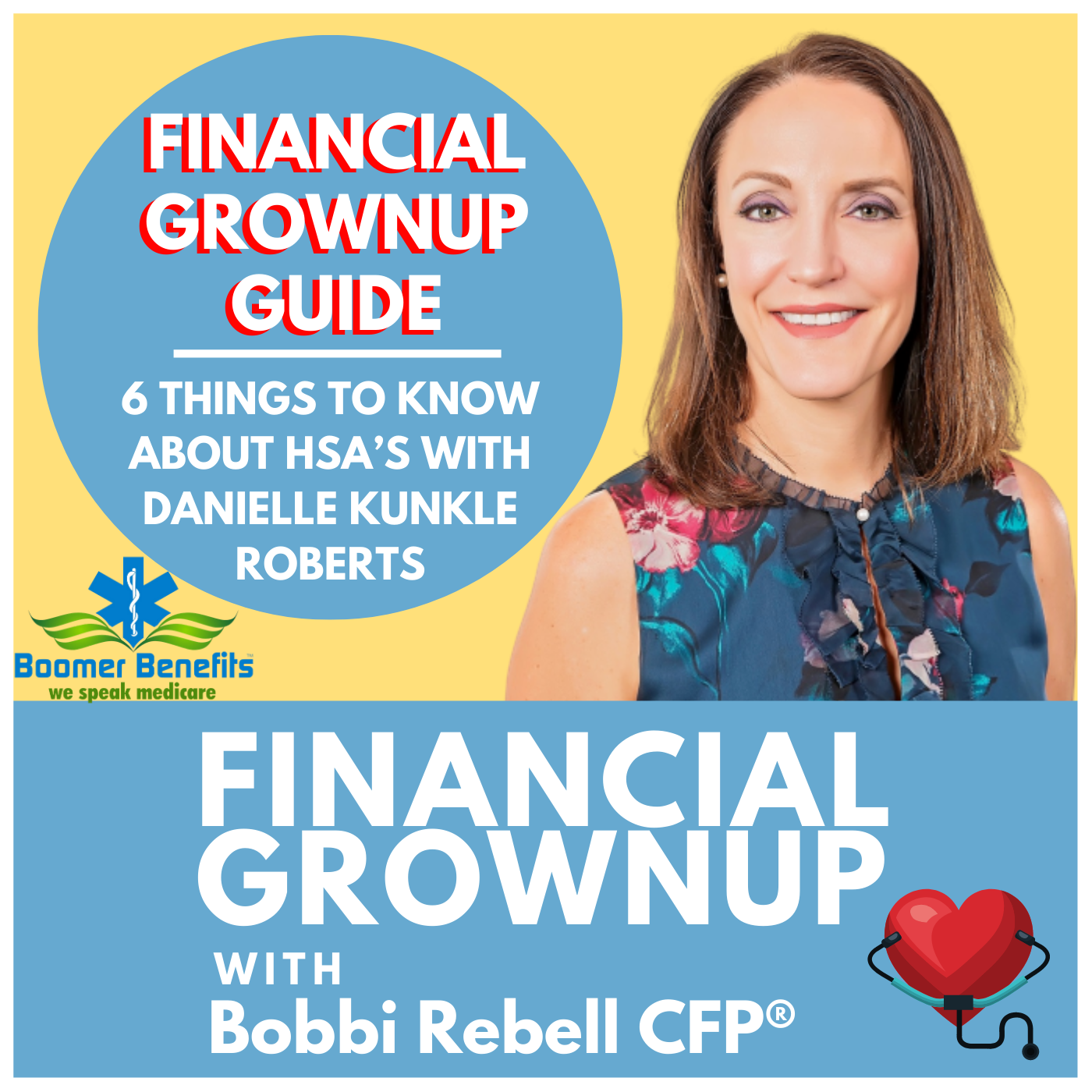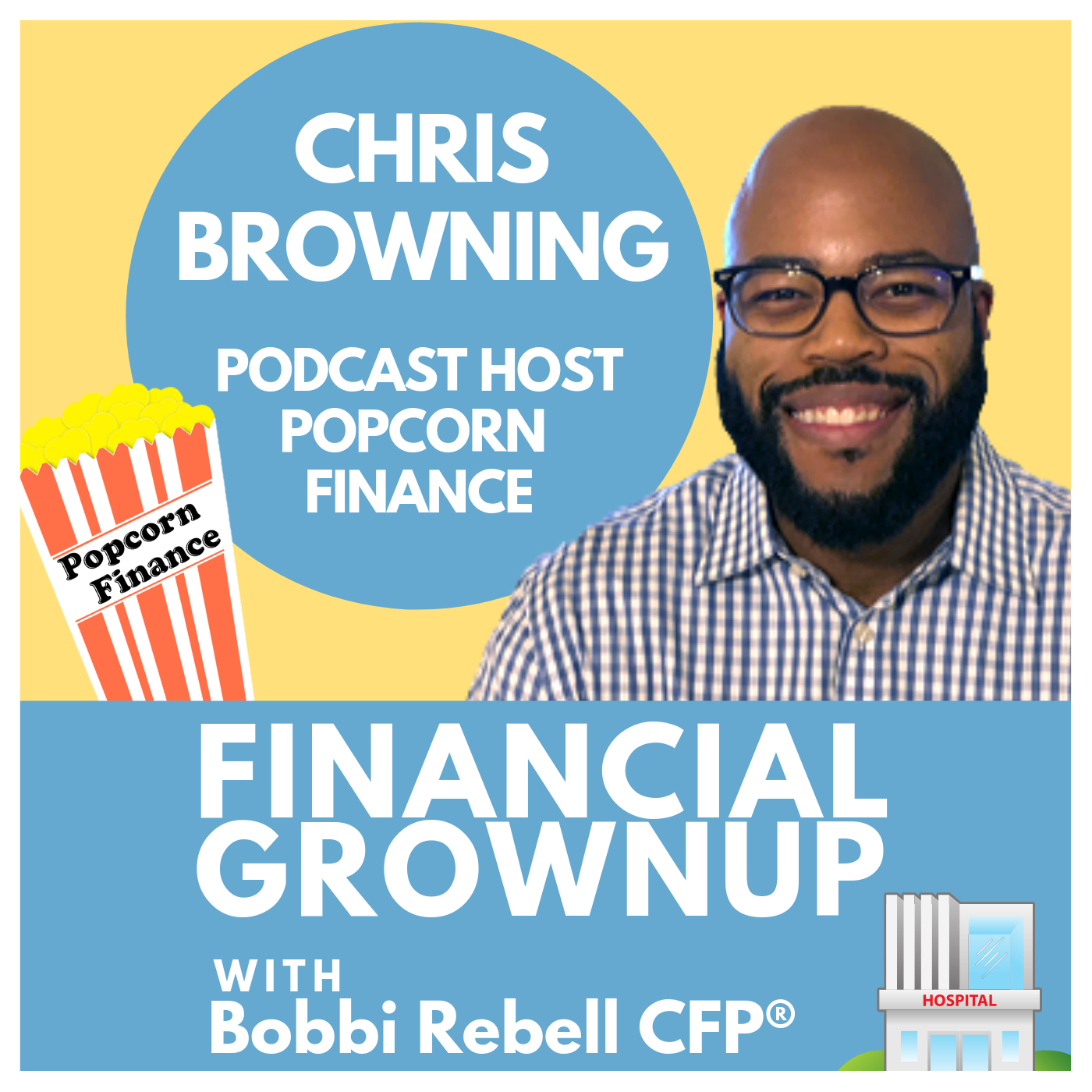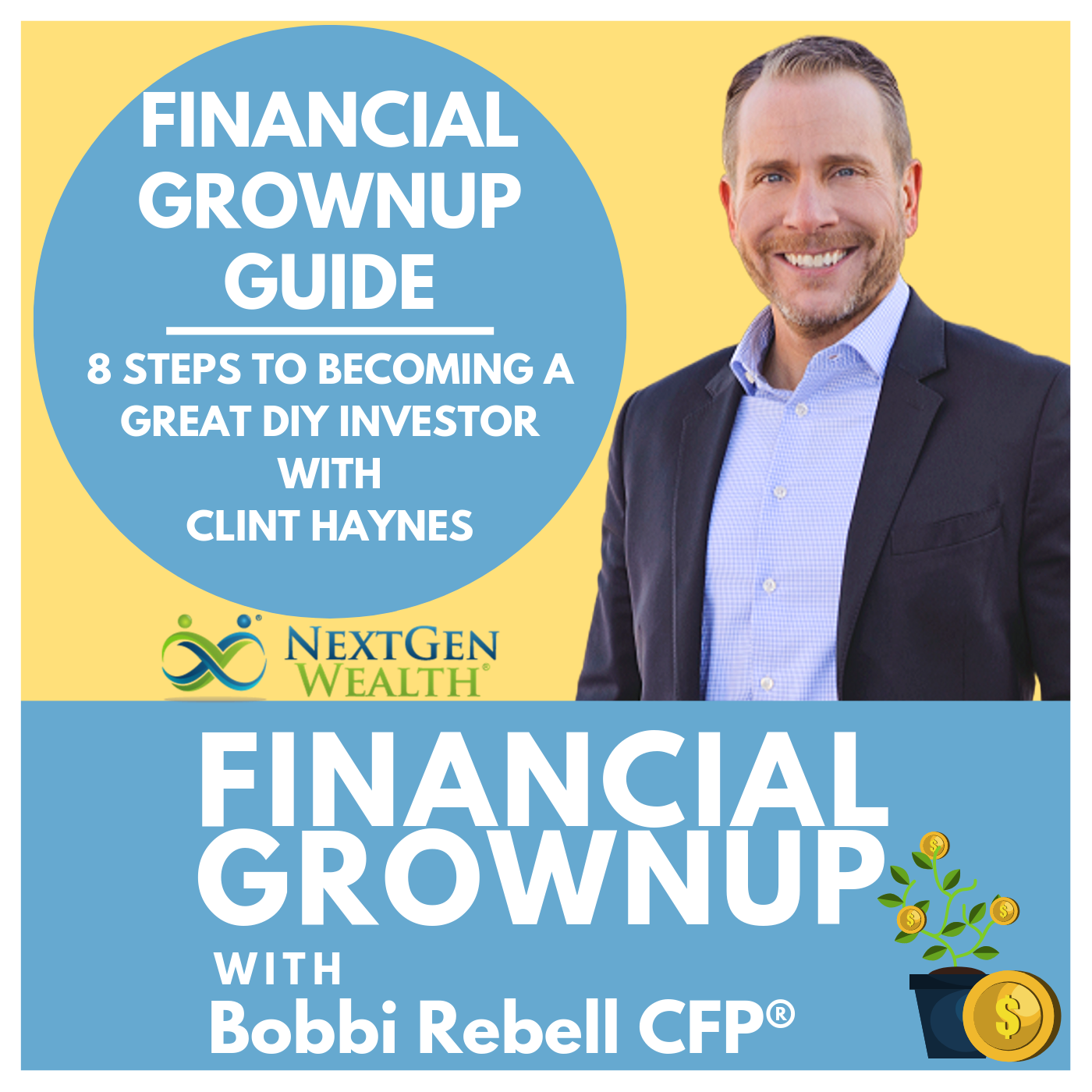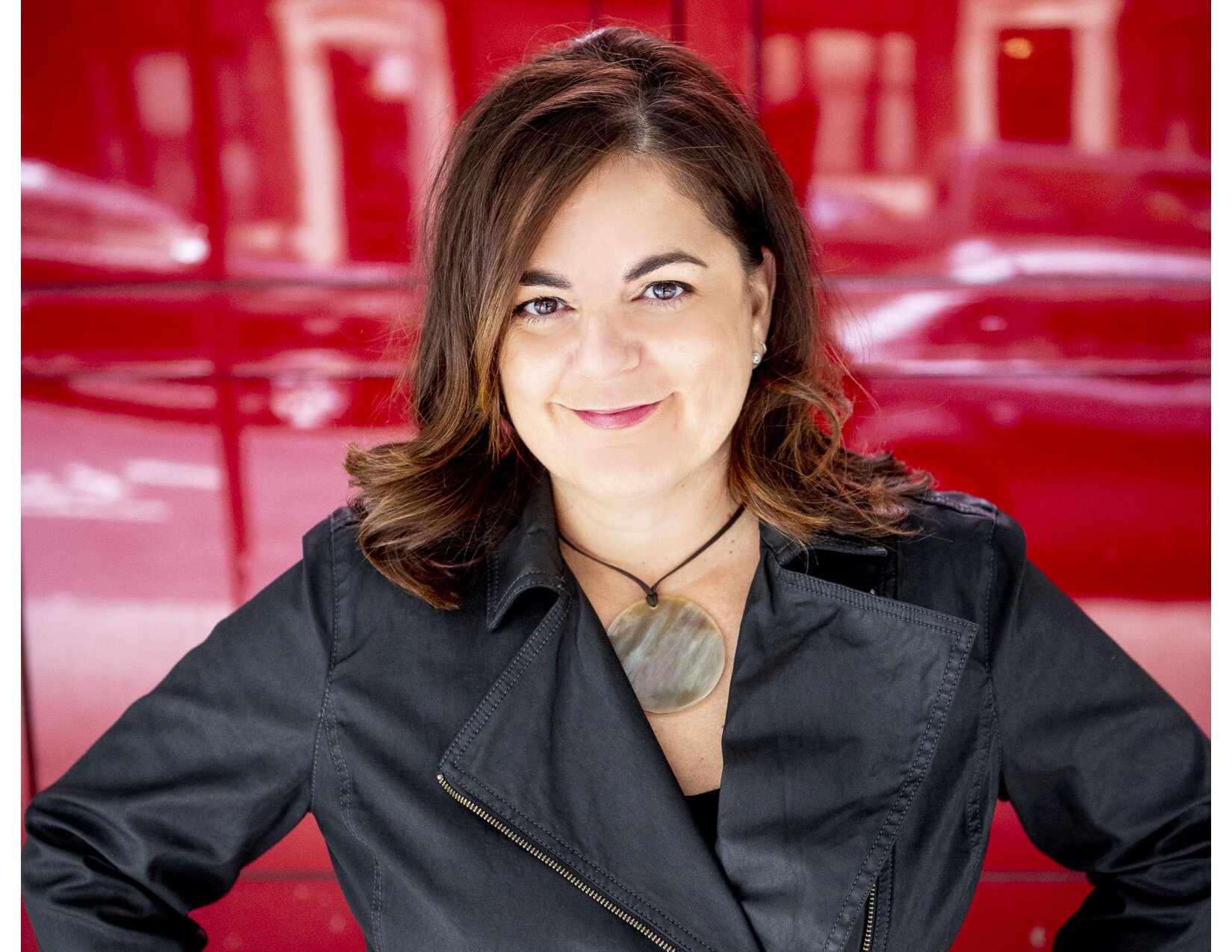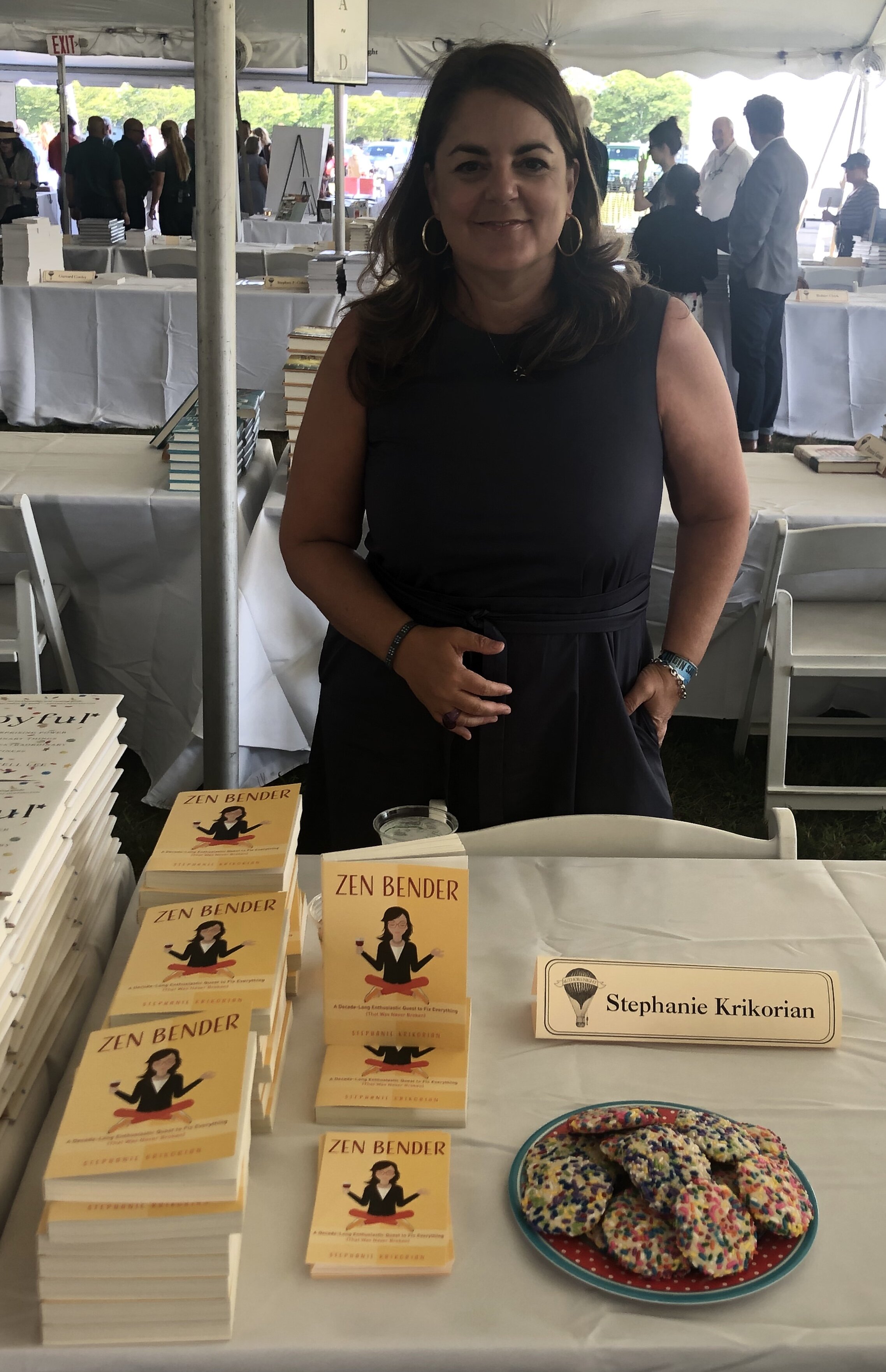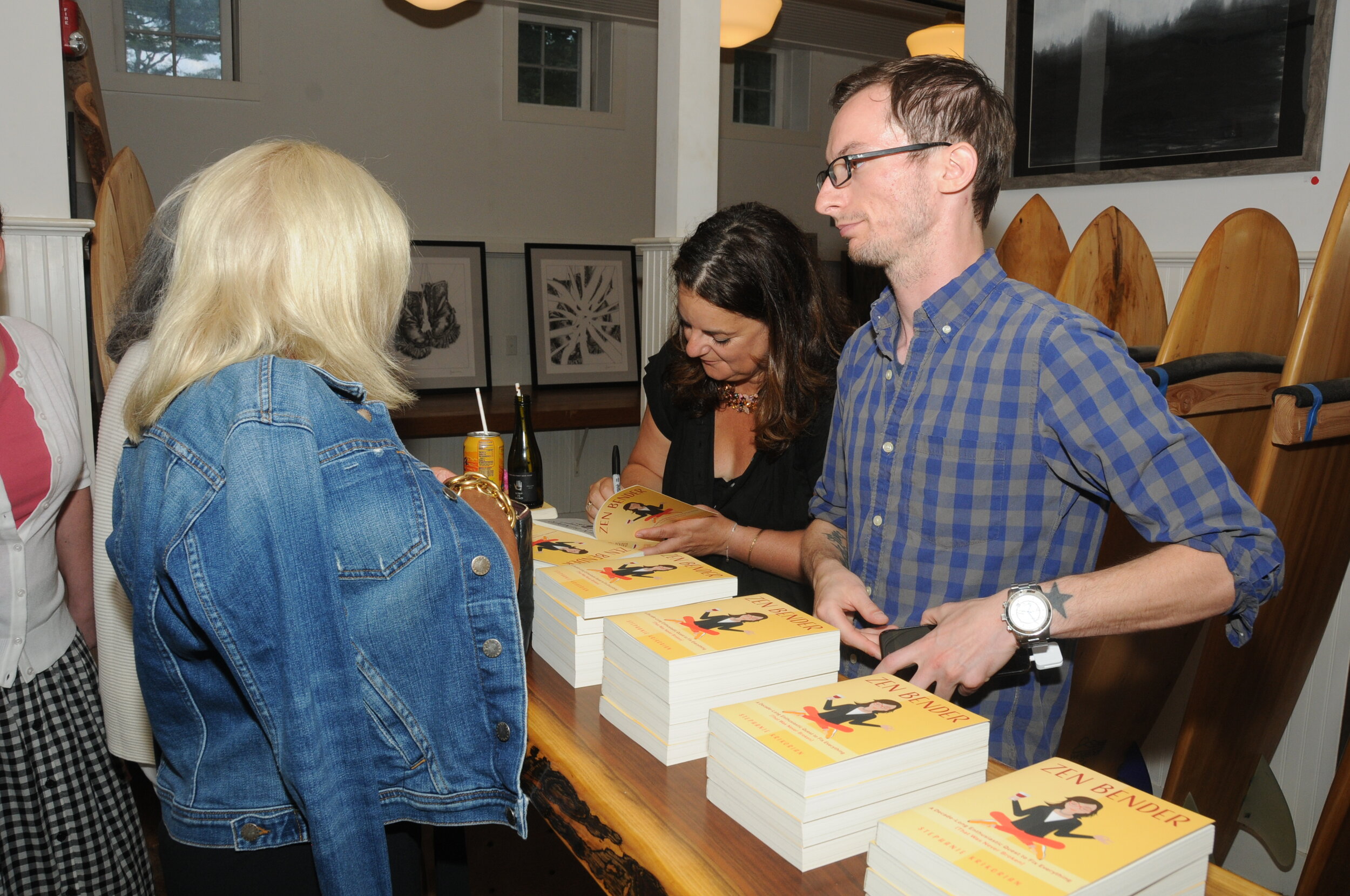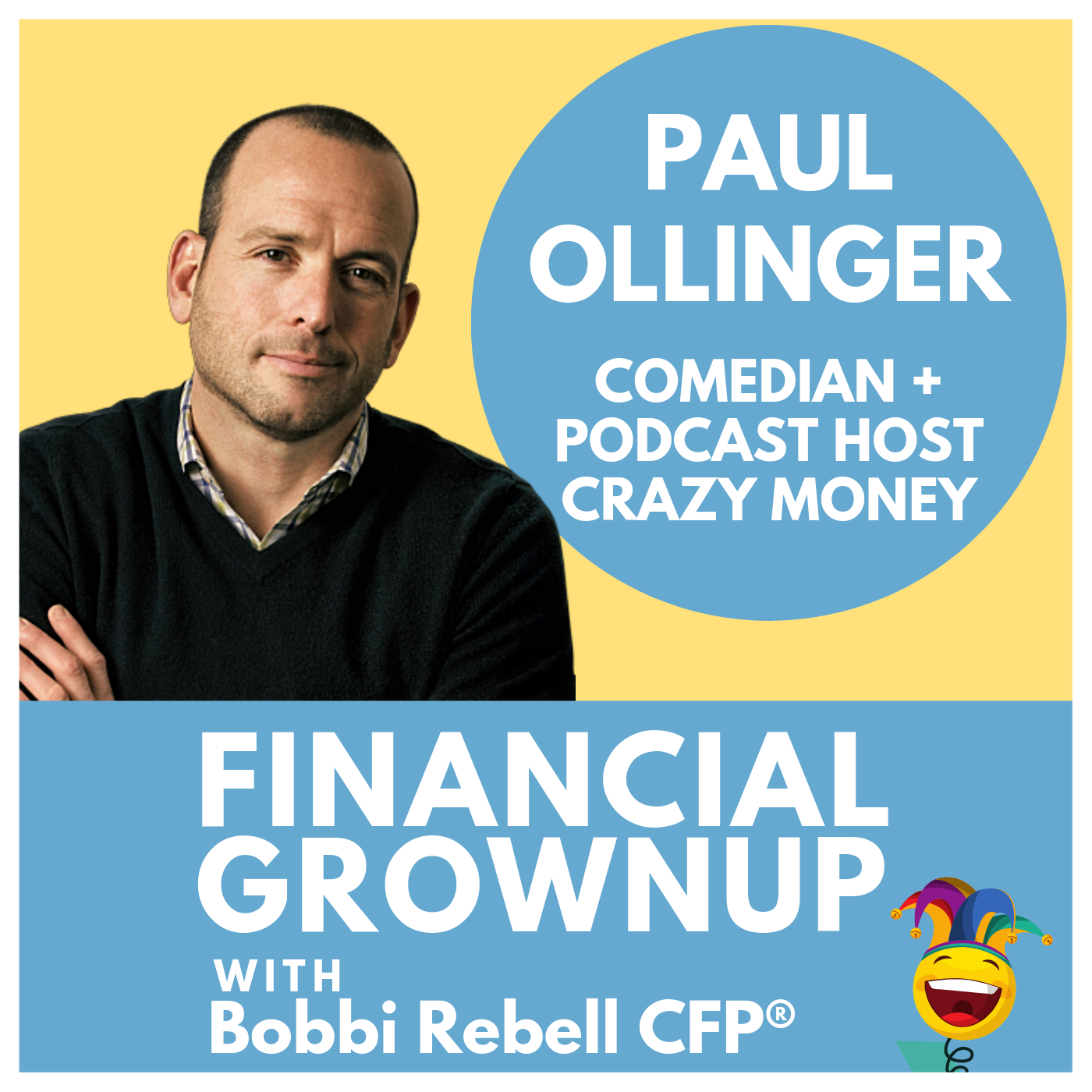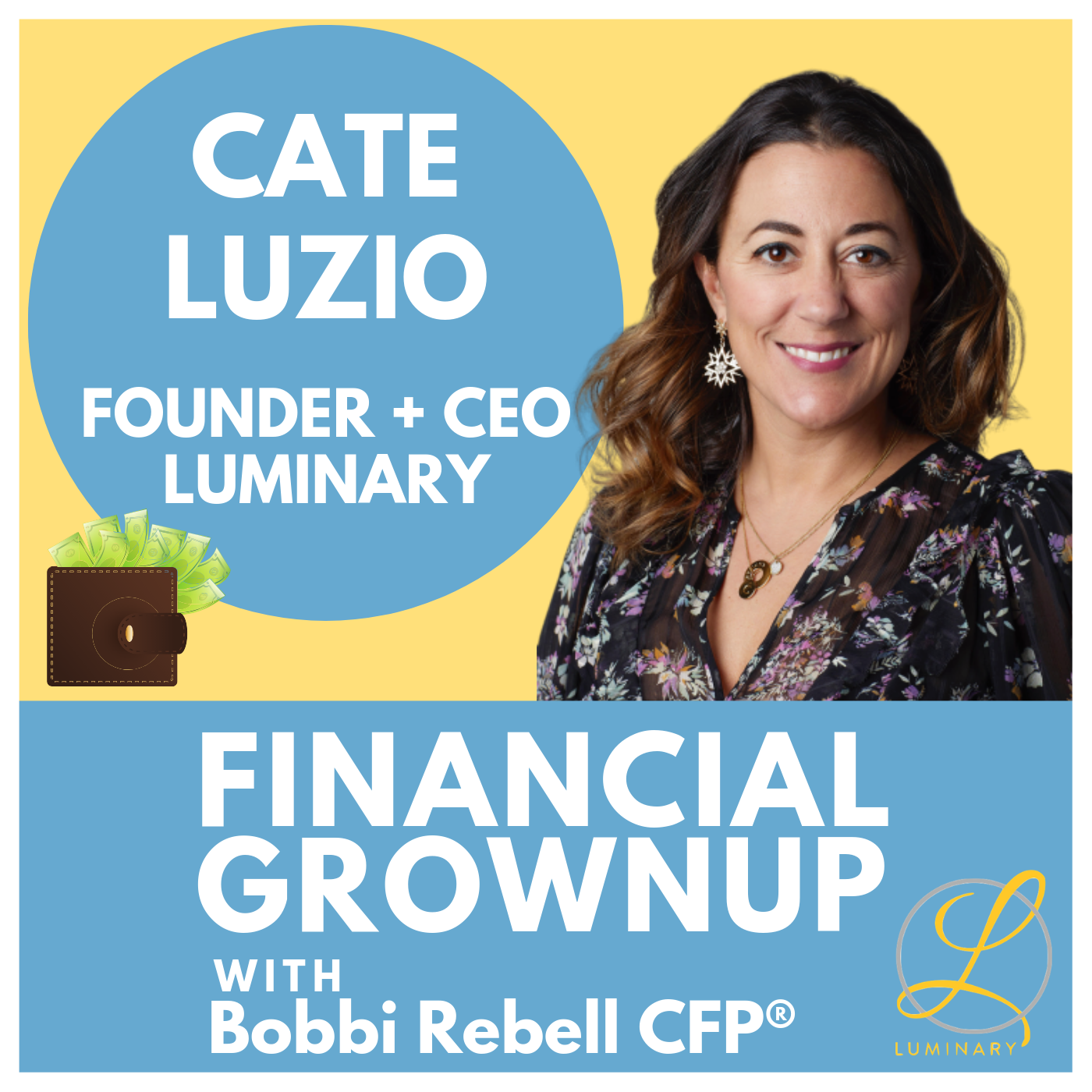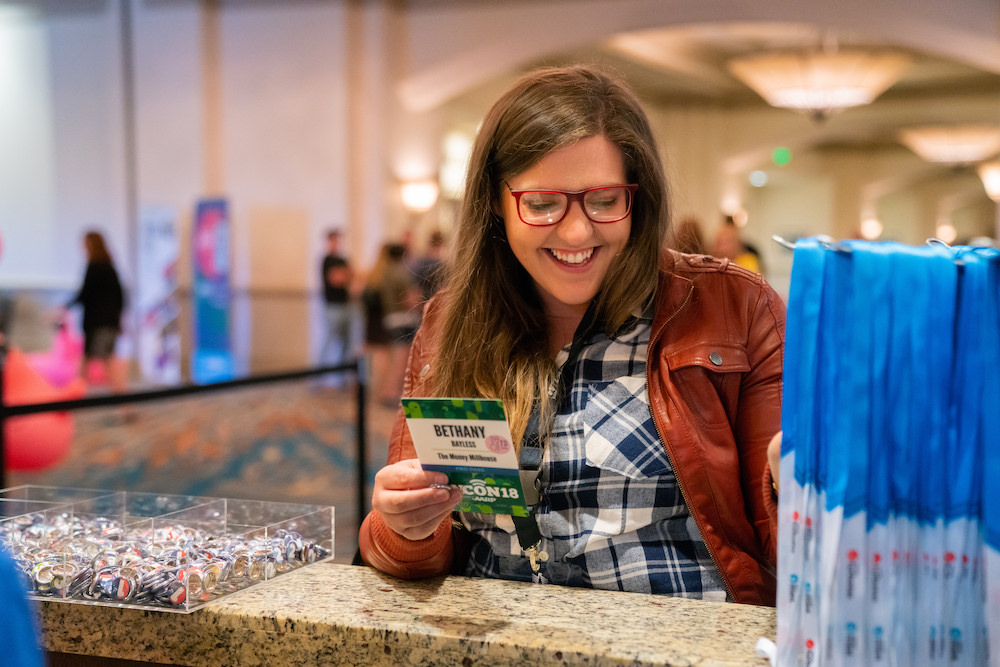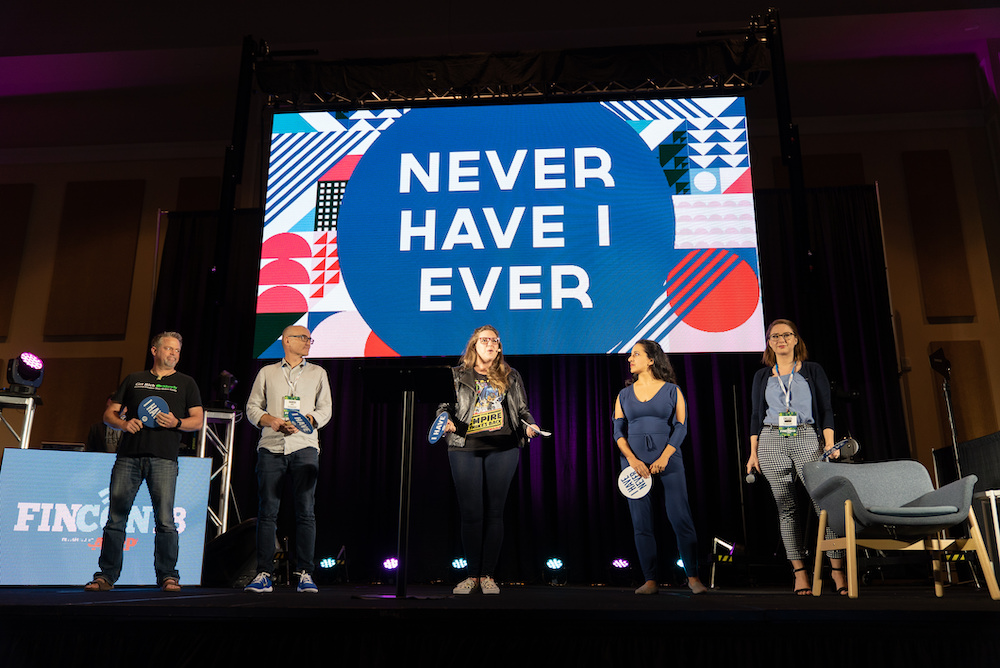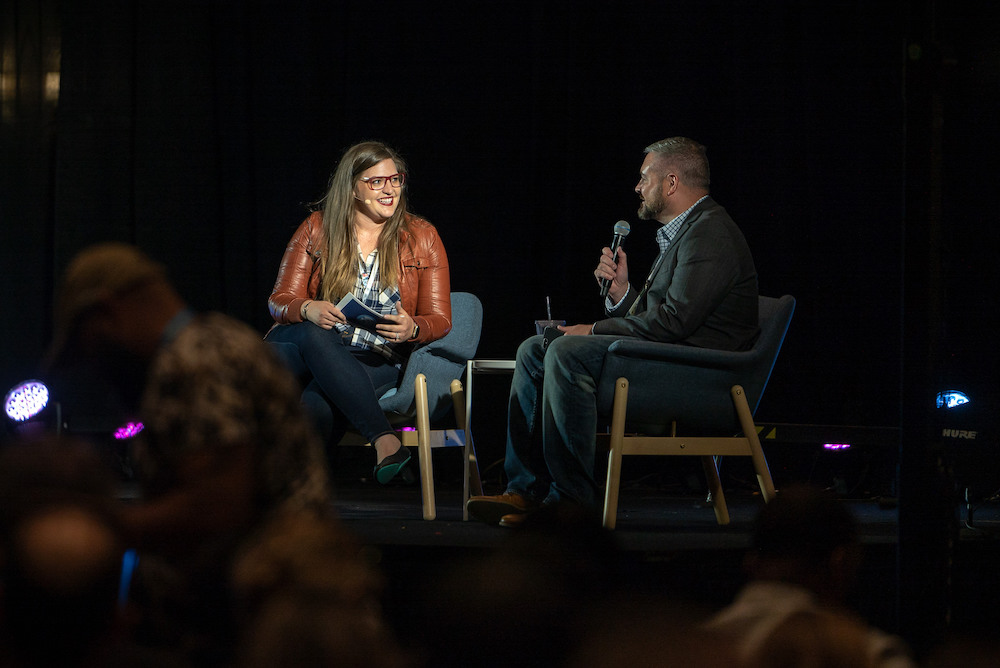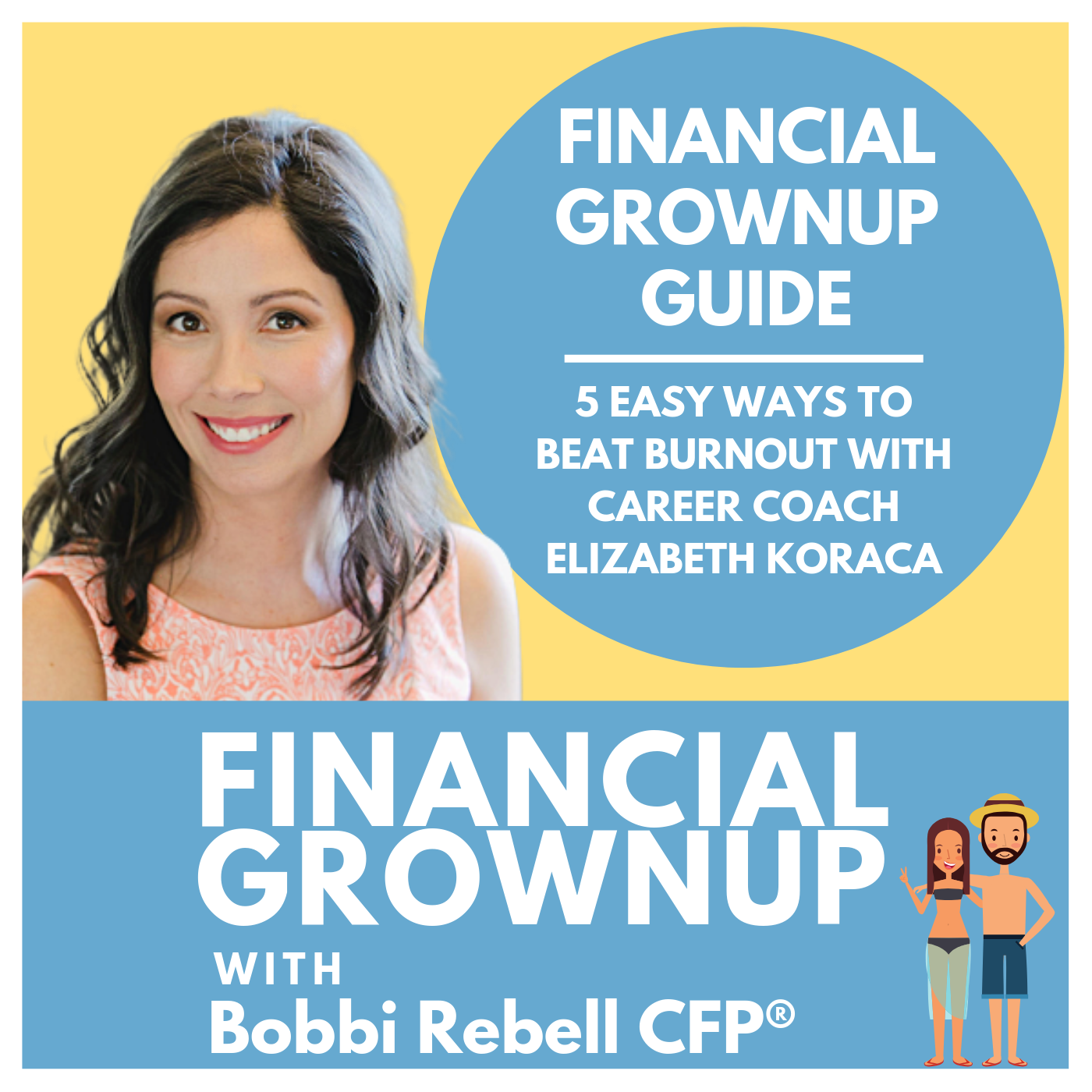Sometimes the best career role models are your first ones. For Ellevate Network CEO Kristy Wallace unfiltered advice from waitresses at a summer job she started as a teen still ring true. Plus her money tip that will instantly save us all cash and extra pounds this holiday season.
Kristy’s Money Story:
Kristy Wallace:
Yeah, it was really interesting. I grew up in this tiny town in New Jersey, called Sea Isle City, and my sister and I worked at this Italian restaurant Bono's and we were teenagers when we did this. We worked there for years every summer, but all of the other waitresses were older. They were oftentimes already in college or many of them were teachers and this was their summer job when school was out. And they really helped instill in us values and perspective when it came to the work we were doing. Waitressing is so interesting because you get tips, you walk out of the door with cash every night and you can easily, especially if you're a young teenager want to go spend that money. But we saw from the teachers how much they saved that money. They worked really hard to get the tips. To keep track of that money and then saved it because that was what was helping to pay their bills and helping them during the school year.
Bobbi Rebell:
Were you tempted when you first started waitressing to just go out and spend the money?
Kristy Wallace:
Of course, of course. And especially I think when new have new driving cars. And so we wanted to go to the mall and buy things and just always going to Wawa, which was this convenience store there and buying drinks and sandwiches. I mean, it's so easy to just throw money away. And the advice that these other waitresses gave us around saving that money and using it more meaningfully. It really stood out. It stood out to me and it continues to stand out to me today because I think oftentimes it's, particularly now with credit cards and you just put your card down and buy, buy, buy and then suddenly you get the bill and it's wide eyes, sticker shock.
Bobbi Rebell:
How did the conversations start? I mean you guys were the new kids there, did they just see what was going on that you were spending your money? What happened?
Kristy Wallace:
I think the conversation started earlier in the season when things were a little bit slower and they would be talking about, how much money did you make last night or tonight, things are a bit slow. Here's how much I'm hoping to make this summer. This is why it's important to make X amount of dollars a summer and how it helps with rent or helps pay my bills during these months and into the winter. So they were just with each other very honest and transparent about their expectations for how much money they wanted to make or needed to make, how they were going to use it and spend it. And we're very inclusive of my sister and I in those conversations. So clearly we didn't, we were still living at home, we were younger, we didn't have that perspective. And we I'm sure would say in this kind of some flippant comments like, Oh, we just go out and buy a bunch of stuff.
Kristy Wallace:
That's great. We have cash. And so they definitely sat us down and said, "Listen, waitressing is a great job but you end up with a lot of cash and it can be easy to not keep track of how much you're making and to put it in the bank and to manage it wisely. And you know, just for now, and especially when you're going to college in a few years and you're older, it's really important that you understand how you spend your money and you spend it wisely." A few years later when I was going to college and using the money I made in the summer to pay for my bills and expenses once I was in school, I came out of the gate just, with all the insights I needed to be successful in that budgeting and in that planning.
“Take the extra shifts.. Put in 110%. Understand how your work relates to the money you are making.”
Kristy’s Money Lesson:
Kristy Wallace:
Be mindful of how you spend your money. You really want to understand ways you can save how you spend the money, but then also the impact you personally can have on driving that income, right? And when I was waitressing, something that I learned from the other waitresses was tips are relational to service. So if you have good service and you work hard to be the best at your job, then you get some money or take the extra shifts. There were a number of summers, particularly once I was in college then I didn't take a single day off the entire summer. I worked every day and I loved it because that meant I was making money and I had my little book where I was keeping track of how much I was making and how much I wanted to make.
Kristy Wallace:
So the lesson is just put in 110%, understand how your work relates to the money that you're making, particularly as you get into the workforce into a corporate environment. Really looking at the work that you do, how that ties to the business and the business success, and using that as a motivator for you to do great work, but then also make that extra money and ask for it.
Bobbi Rebell:
Speaking of extra money, you have extra money because of the everyday money tip that you're going to share. Tell us your everyday money tip.
“Do great work but also make that extra money. Ask for it. ”
Kristy’s Money Tip:
Kristy Wallace:
I have three kids at home. They are little kids and every month or week the grocery bills were astronomical. And at the same time I was finding that I was spending a lot of cash every week and I couldn't quite understand why. So I spent a lot of time, I looked at all my budgets, my numbers, and where I was spending money and how I was spending it. I love Excel spreadsheets, so I categorized everything. And realized it was spending not just a lot of money at the grocery store, but a lot of money eating out just during the week. Getting coffee, grabbing breakfast, lunch could easily add up to $20, $30 a day. And when you think about that over five days a week, plus the grocery bills, it really adds up. So I stopped doing that. I stopped eating out. I would bring my breakfast and lunch. My husband and I would make these little egg muffins.
Kristy Wallace:
You make eggs in a muffin tin, so they're easy to just grab and go and make coffee at home. A pound of coffee is $12 versus a $4 cup of coffee when you're out. I love making soups and stews. They're relatively inexpensive to make and they freeze and they last a long time, so I make a big pot every weekend of something and just found it to be not only easy but financially healthy. And healthy for me in terms of the food I was eating.
Bobbi Rebell:
Yeah, and I think the everyday money tip there is actually look at the numbers because this is not something new. It's not something that we haven't all thought of. We all know that we shouldn't be spending so much money out, but it takes a lot to actually sit down and say, "Wait, look at what I'm actually spending," to actually add up the receipts.
Bobbi Rebell:
Especially when your grocery bill was high as well, so you might've thought, well I don't want to spend more money on groceries and if you eat at home in theory you'd be spending more on groceries so it's all going to work out. Not so much. I think you have a great example and making things like soups and stews in batches. I think that's a key thing that you have it ready in advance. It's something that I need to work on more is to actually plan in advance what you're going to be bringing with you when you go out so you're not left scrounging for coffee because you didn't have the coffee machine set the night before. And also maybe have a coffee cup that's portable that you can bring with you because you don't have something to bring in the coffee with you and it's time to go. You're kind of stuck and you're going to buy that coffee on the run.
Kristy Wallace:
Plan ahead, be creative. There's lots of great sites and recipes out there.
Bobbi Rebell:
What's your favorite site?
Kristy Wallace:
I like all recipes actually because it's crowdsourced and so there's kind of some fun things and the comments are really interesting. Food 52 is always great. There's some great bloggers out there. We will sometimes try to eat Paleo or maybe Whole 30, so some really great sites out there with some good modifications to recipes that are really healthy and delicious.
“Plan ahead. Be creative. There’s lot of great sites and recipes out there.”
Bobbi’s Financial grownup tips:
Financial grownup tip number one:
Let's talk about work ethic and the fact that while it's nice to enjoy your work, we all should. It is also about the money. In fact, if we're being honest, there is nothing wrong with admitting you are showing up because they are paying you money. I love that we're paying attention more these days to things like self-care and "work life" balance and it's about time that matters, but let's not forget Kristy's advice. Take the extra shifts because work is about making money. Not saying we can't all benefit from a little yoga. All that stuff matters too, but paying bills is also a form of wellness. Think of all the reduced stress by having extra cash in the bank. Don't lose sight of that.
Financial grownup tip number two:
Christie talks a lot about meal planning.With the holidays coming up maybe also do some shopping planning. We're just a smidge ahead of black Friday and there's nothing wrong with shopping, but if you plan out ahead of time what you're going to buy, those plans will go a long way to keeping you from buying something not on your list because it's on sale. That's not a good reason. I've fallen into that trap. Trust me, and also don't forget if you do fall into that trap and buy something and you regret it. As I've said before, don't be afraid to return it. You usually can. Problem solved.
Episode Links:
Blinkist - The app I’m loving right now. Please use our link to support the show and get a free trial.
Kristy’s website - www.ellevatenetwork.com
Ellevate’s new peer networking circle Squads
www.allrecipes.com
food52.com
Follow Kristy!
Instagram - @kristyawallace
Twitter - @kristyawallace
LinkedIn
Follow Ellevate Network!
Instagram - @Ellevate_Ntwk
Facebook - @EllevateNetwork
Twitter - @EllevateNtwk
Pinterest - @ellevatenetwork
LinkedIn









